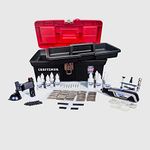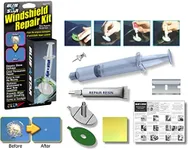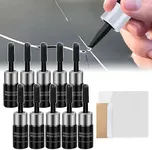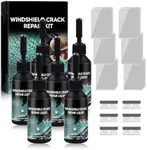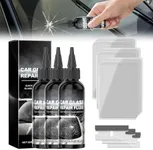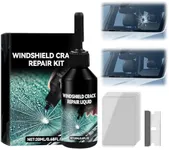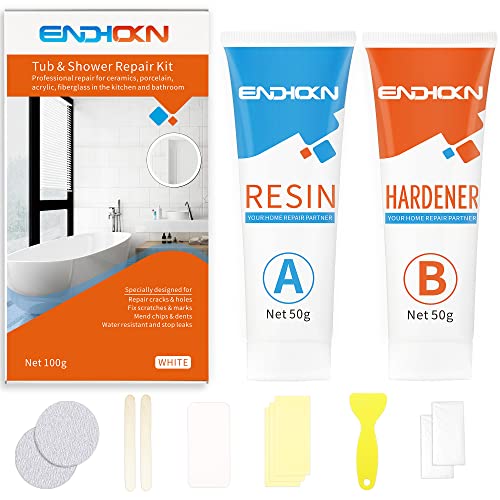Buying Guide for the Best Glass Crack Repair Kit
When it comes to picking a glass crack repair kit, it's important to understand that not all kits are created equal. The right kit for you will depend on the type and size of the crack, the material of the glass, and your level of experience with DIY repairs. By understanding the key specifications and features of these kits, you can make an informed decision and ensure that you get the best results possible.Type of ResinThe resin is the substance that fills the crack and bonds the glass back together. It's important because a high-quality resin will create a stronger, more durable repair. Resins can vary in their viscosity (thickness) and curing time. Thicker resins are better for larger cracks, while thinner resins can penetrate smaller cracks more effectively. If you're dealing with a small chip or crack, a thin resin will likely be sufficient. For larger or deeper cracks, look for a kit with a thicker resin.
Curing MethodThe curing method refers to how the resin hardens and sets. Some kits use UV light to cure the resin, while others may use a chemical curing process. UV curing is generally faster and can provide a stronger bond, but it requires sunlight or a UV lamp. Chemical curing can be done indoors and doesn't require special equipment, but it may take longer. If you need a quick repair and have access to sunlight or a UV lamp, a UV curing kit might be the best choice. If you prefer to work indoors or don't have access to UV light, a chemical curing kit will be more convenient.
Ease of UseEase of use is crucial, especially if you're not experienced with glass repairs. Some kits come with detailed instructions and all the tools you need, while others may be more basic. Look for a kit that includes clear, step-by-step instructions and all necessary tools, such as applicators, curing strips, and cleaning supplies. If you're a beginner, a kit with comprehensive instructions and all-in-one tools will make the process much easier and increase your chances of a successful repair.
Size of the CrackDifferent kits are designed to handle different sizes of cracks. Some are best for small chips and cracks, while others can handle larger or more complex damage. It's important to assess the size and type of crack you're dealing with before choosing a kit. For small chips and cracks, a basic kit will usually suffice. For larger or more extensive damage, look for a kit specifically designed for those types of repairs.
Compatibility with Glass TypeNot all resins are compatible with all types of glass. Some kits are designed specifically for automotive glass, while others may be better suited for household windows or glass furniture. Make sure the kit you choose is compatible with the type of glass you're repairing. If you're repairing a car windshield, look for a kit labeled for automotive use. For household windows or other types of glass, check the kit's specifications to ensure compatibility.
